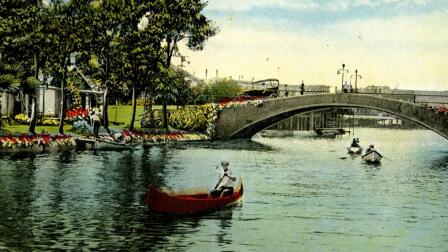Back to Show
Lost LA
Central Casting: Extras and Ethnicities
In 1925, Hollywood studios joined together and formed the Central Casting Bureau. At a time when aspiring motion picture players were flocking to Los Angeles, this new organization streamlined the casting process, but it also marginalized nonwhite actors. Central Casting took advantage of L.A.’s diverse social and cultural landscapes, hiring representatives within the city’s segregated ethnic enclaves to function as intermediaries when the studios called for actors of particular ethnicities. Some – even journalists working in the black press – praised the practice as a form of racial progress. But more often than not, stardom was reserved for white actors. For people of color, working as a Hollywood actor meant working as an extra.
Support Provided By
Season

27:05
Trace the devastation of the 1928 St. Francis Dam collapse and its deadly flood.

26:40
How Cold War vigilance and secrecy shaped Southern California culture.

26:39
The Space Shuttle Endeavour’s journey is traced from its origins.

26:40
Tiki culture isn’t a Polynesian import — it’s a Hollywood creation.

26:49
Archives reveal the “forgotten plague” that shaped Southern California: tuberculosis.

26:50
Visit Hollywood Forever, Evergreen and Forest Lawn, where L.A. reinvented the cemetery.

26:40
The hiker-activists who led Angelenos into their hills and onto the trails.

26:39
How Filipino Americans in Southern California are making their heritage more visible.

26:47
Iconic fast-food chains from McDonald’s to Taco Bell were born in SoCal.

26:37
After internment camps, Japanese Americans made L.A.'s Crenshaw neighborhood their home.

26:04
During WWII, L.A. became a sanctuary for Europe’s accomplished artists and intellectuals.
















